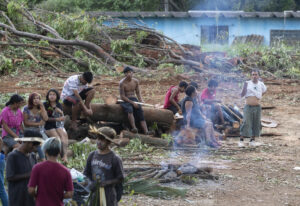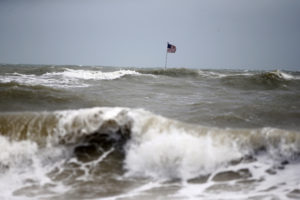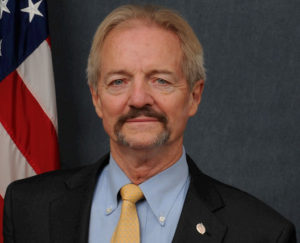U.S. Fish and Wildlife Service Does Very Little to Protect Fish and Wildlife
Of 88,000 actions and developments considered potentially threatening to the nation’s endangered species over the past seven years, a study finds that not one has been halted by the U.S. government. Tambako The Jaguar / CC BY-ND 2.0
Tambako The Jaguar / CC BY-ND 2.0
Of 88,000 actions and developments considered potentially threatening to the nation’s endangered species over the past seven years, not one has been halted by the U.S. government, a new study has found.
The Guardian reports:
An analysis of assessments made by the US Fish and Wildlife Service, published in the Proceedings of the National Academy of Sciences, found that the agency very rarely used its powers to intervene in projects that could imperil any of the US’s endangered plants and animals, which currently number almost 1,600.
Of 88,000 actions assessed by the FWS between January 2008 and April 2015, just two triggered significant further action. A 2007 plan to drop fire retardant in California was deemed by the FWS to be prohibitively harmful to forest-dwelling endangered species, although this was challenged in court. The FWS also stepped in over a plan to divert water from the San Francisco Bay Delta due to concerns over the impact to threatened fish. […]
According to Defenders of Wildlife, a wildlife welfare group that conducted the analysis, the FWS is intervening in a diminishing number of cases. A tally from 1991 shows that there were 350 “jeopardy judgements” out of 73,560 previous consultations, compared with the two adverse outcomes in 80,000 cases over the past seven years.
Defenders of Wildlife said that the analysis shows it is misleading to claim that federal wildlife regulations are hampering development and harming jobs.
“The impression we often get from Congress and the media is that the Fish and Wildlife Service makes these calls all the time, that you can’t cut down a tree to build a swimming pool or that you can’t graze cattle on your ranch,” said Ya-We Li, the senior director of endangered species conservation at Defenders of Wildlife. “A lot of projects are modified in the first place, but this shows that none of them were stopped or substantially modified in order to avoid the jeopardy finding.”
Keep reading here.
— Posted by Alexander Reed Kelly.
Your support matters…Independent journalism is under threat and overshadowed by heavily funded mainstream media.
You can help level the playing field. Become a member.
Your tax-deductible contribution keeps us digging beneath the headlines to give you thought-provoking, investigative reporting and analysis that unearths what's really happening- without compromise.
Give today to support our courageous, independent journalists.






You need to be a supporter to comment.
There are currently no responses to this article.
Be the first to respond.